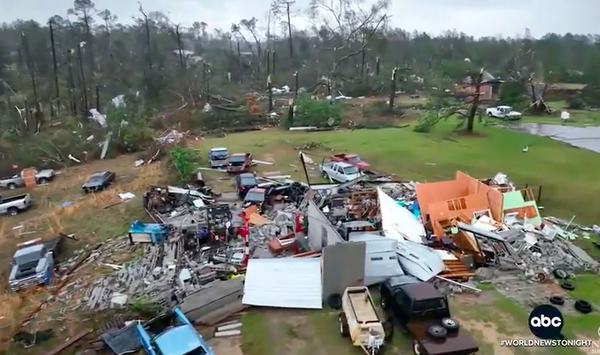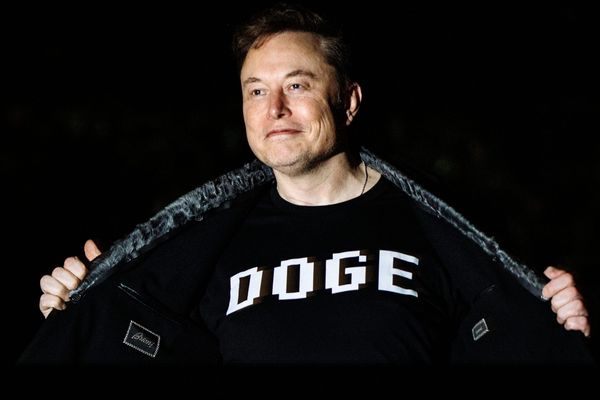
On the streets of Bradford, where customers are inspecting colourful stacks of fruit and vegetables piled high outside the shops that sit in the shadow of tall minarets, assisted dying is not the hot topic of conversation.
Many here do not know that a debate on the issue is playing out in parliament, after Kim Leadbeater, the MP for nearby Spen Valley, put forward a private member’s bill proposing a change in the law.
Among those who are aware – doctors, community leaders, religious scholars – some say the concept is so alien to practising Muslims, the debate will have passed many by. But there are concerns among professionals here that the bill could have unintended consequences in these communities.
According to the 2021 census, 30.5% of Bradford’s population identified as Muslim, the highest proportion in any UK city. “The concept of assisted dying doesn’t necessarily exist within the Muslim culture,” said Rashad Bokhari, the CEO of the Bradford Council of Mosques.
“The general perspective from an Islamic point of view, is very much … life is a gift from God. So God gives you life. God takes the life.”
Shabana Mahmood, the justice secretary, said she would vote against the bill, as it is incompatible with her faith.
Defying Cabinet Office advice for the government to remain neutral on the issue, she said that death is “not a service that the state should be offering”.
“As a Muslim, I have an unshakeable belief in the sanctity and the value of human life,” she told the Times.
But as well as being an issue of conscience for the city’s Muslims, the bill also comes against a backdrop in which faith and trust in the medical professional was eroded during the Covid pandemic, and where inequalities already exist in end-of-life care that some say are at risk of being deepened.
“The biggest barrier to good end-of-life care, including for those who don’t want their lives prolonged, are the huge inequalities in access to palliative care across the country,” said Jamilla Hussain, a consultant in palliative medicine at Bradford teaching hospitals NHS trust.
“The provision is patchy. We’re still very much relying on bake sales to fund our services, and we know every year over 100,000 people who need palliative care don’t get access to it.
“We know on top of that, people from ethnic minority backgrounds and those from more disadvantaged backgrounds, are some of the least likely to access our services,” she added.
Hussain, also an academic, is leading two nationally funded studies in Bradford: one addressing racism at the end of life and another looking at how minority ethnic people with frailty may be affected by prejudice and discrimination in their last years and months.
She said she has no moral objection to assisted dying, but among her professional concerns are that if it were on the table, it may lead to people who are fundamentally opposed to the practice being fearful to access end-of-life care.
“It’s not just the Muslim community,” she said. “I’ve discussed this with groups supporting the Roma community and the Black Caribbean communities too. They were all deeply shocked that something such as this was being considered in the UK and none were aware of the proposed legislation.
“And some even suggested they’d be so concerned that they’d rather take their loved ones abroad, potentially to countries with poorer health care provision in other ways, because they’d be so worried that their loved one would be exposed to assisted dying.”
Her concerns were echoed by Nadia Khan, a palliative care consultant and a spokeswoman from the British Islamic Medical Association.
The organisation is opposed to assisted dying, she said, with its members holding practical and ethical concerns. “Our message very much is we need to be focusing on improving healthcare, and particularly palliative care for people coming towards the end of their life to make sure they’ve got the choice of having a dignified and comfortable death,” she said.
“Our concern particularly is around the widening of health inequality when it comes to good end of life care,” she added. “Following the Covid pandemic I think medical mistrust is certainly a feature, where deaths happened in hospital that were quick, unexpected, and people weren’t able to be with their loved ones.”
In Bradford, it is clear that Covid hit this community even harder than most. At the Khidmat Centre, which runs dedicated support services from elderly and vulnerable people from south Asian Communities, Javed Ashraf said the scars run are deep.
Six years ago land was bought for a new cemetery. “That land was supposed to last 10 years, and my mother got buried four or five weeks ago, and we’ve only got space for another 15, 20 graves,” he said. “We had so many deaths due to Covid, the cemetery has been filled up. So it had a huge, huge impact.”
The pandemic, Khan said, “created a cultural fear and mistrust around what was happening, and I think that has lingered, and there’s ongoing vaccine hesitancy.”
“We’re concerned that assisted dying, adding that as a potential ‘treatment’ for death will create even more barriers,” she said.
Some also hold fears that those who are already disadvantaged will be at more risk of abuse or exploitation of the legislation – Bradford is the fifth most income-deprived local authority in England.
“I think that this is somehow going to be quite dangerous and full of many risks, particularly for the poor people,” Mohammed Ajeeb, the former lord mayor of Braford, and a former Bradford city teaching primary care trust.
“I think this is wider than just a perspective from the Muslim community,” Faiz Ilyas, a Bradford councillor, added. “Around vulnerable people, and what are society’s expectations, what are the economic pressures that people are facing, what are the challenges that are going on?
“Is there a sense of vulnerability, or maybe even coercion that could occur in these sort of situations?”
Although much of the debate is happening 200 miles away in Westminster, Ilyas said the issue is now starting to filter through, and he has heard concerns from some in his community, adding “it does touch a nerve with people.”
Assisted dying will no doubt become more of a talking point, people here say.
In the Muslim faith, “death is very, very important,” Bokhari said, “and the respect and dignity of someone who’s passed away is paramount.”
“The only inevitable thing in life is death,” he added. “So this is something everyone should have a say in.”







